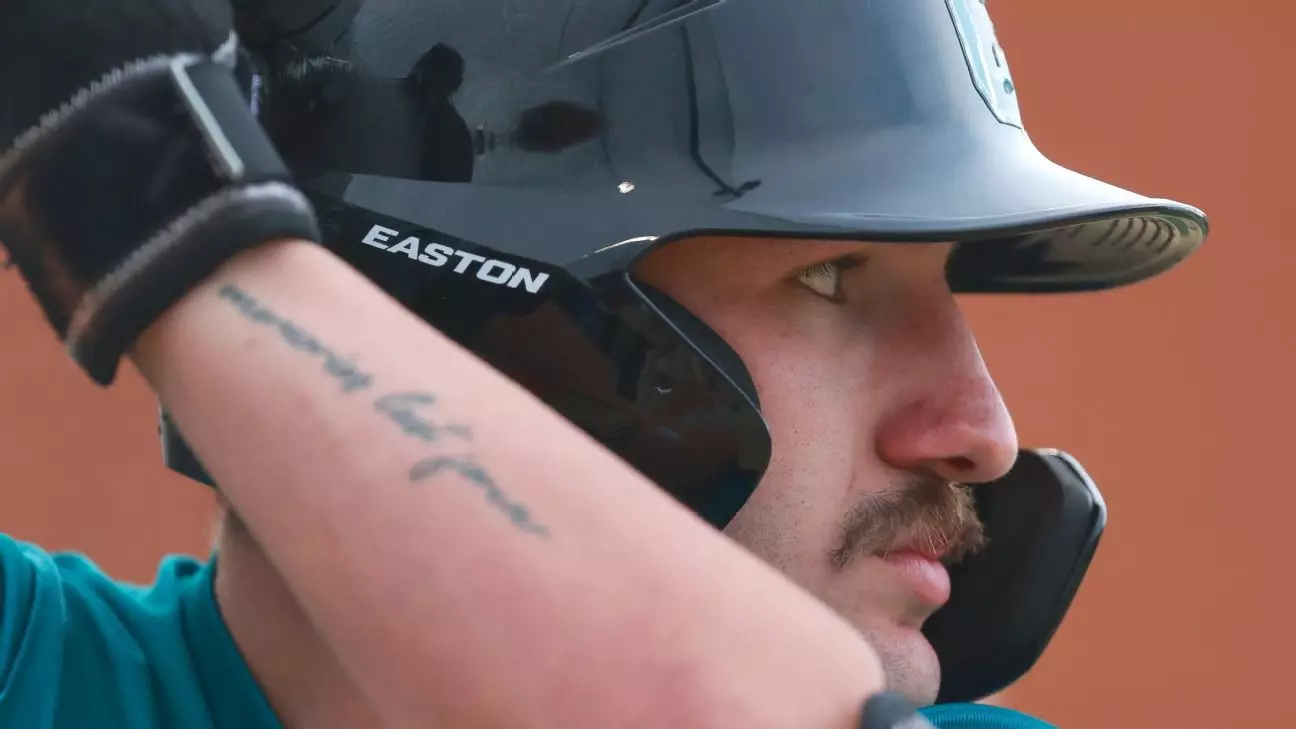In a world where sports integrity holds monumental importance, the recent accusations against Derek Bender, a former minor league catcher for the Minnesota Twins, have sent shockwaves throughout the baseball community. Bender stands accused of “pitch tipping,” an action that involves divulging to opposing batters the types of pitches being thrown by his own team’s pitcher. This practice not only challenges the fundamental ethos of fair play but puts into question the player’s loyalty and dedication. On September 6, during a doubleheader, Bender reportedly communicated this critical information to members of the Lakeland Flying Tigers, a minor league affiliate of the Detroit Tigers, leading to a decisive victory that eliminated Bender’s team from playoff contention.
Under scrutiny, Bender has firmly denied any wrongdoing. Speaking to reporters from The Athletic, he asserted, “No, I never gave pitches away. I never tried to give the opposing team an advantage against my own team.” This categorical denial signals a profound philosophical and moral struggle for an athlete suddenly thrust into controversy, raising questions about the balance between loyalty and competitive integrity in professional sports.
The Fallout and its Psychological Toll
The ripples of these allegations extend far beyond the diamond. Bender has expressed the psychological toll this incident has taken on him. “I had to go dark for at least three days,” he revealed, referencing the social media backlash and the distressing messages he received. Death threats and obscurely cruel comments became an unfortunate reality, pushing him into a psychological abyss. Losing the respect of peers exacerbates this anguish. Bender noted the alienation from his former teammates, illustrating the emotional strain stemming from the stigma attached to the allegations. “I’ve heard my friends get questioned about me,” he remarked, reflecting a profound sense of loss, not just professionally, but personally as well.
The rupture of relationships emphasizes the broader implications of public perception in sports. Athletes often build intricate networks of camaraderie, and when that foundation is shaken due to accusations, the repercussions can be devastating. Bender’s plight serves as a stark reminder that athletes are human beings, wrestling with their own feelings of guilt, shame, and longing for redemption.
Despite the overwhelming challenges, Bender is attempting a comeback. He has accepted a position with the Brockton Rox in the independent Frontier League, a decision that signifies his determination to reclaim his career. Yet, the path to redemption is fraught with complexities. While he wishes to resume playing professionally, he is also wrestling with the implications of his past actions and the ongoing investigation by Major League Baseball (MLB).
Notably, Bender’s narrative reveals layers of personal growth. He stated, “It’s about gaining control over my life,” integrating a sense of agency into his struggle for redemption. This moment of reflection embodies a crucial turning point for him—a realization that he must regain command over his life rather than let external circumstances dictate his future. The interview marked a new beginning for Bender, not merely as a last-ditch attempt to return to affiliate ball but as an assertion of his autonomy amidst a chaotic situation.
As the investigation by MLB continues, the stakes are high for Bender. Should he be found guilty of the allegations, the implications could lead to a permanent ban from the league—a devastating reality that could extinguish his professional dreams. However, on an even broader scale, this incident may serve as a cautionary tale for the MLB and all sports leagues regarding the perpetually complex relationship between athletes and the expectation of fair play.
The league’s response will ultimately shape the narrative surrounding Bender’s public persona and career. If the MLB chooses a heavy-handed approach, it risks sending a stark message about the consequences of competitiveness overriding ethical boundaries. Conversely, a focus on understanding, rehabilitation, and education surrounding such transgressions might pave the way for Bender to integrate back into a community that is quick to judge but also capable of forgiveness.
Bender’s story underscores the trials and tribulations faced by athletes under scrutiny. While aspirations for a return to baseball loom large, the journey toward personal redemption and public acceptance will require immense resilience, introspection, and the courage to confront the shadows of the past.


Leave a Reply